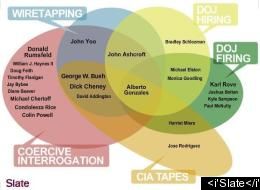thanks to Juan Cole's Informed Comment for a link to Just World News by Helena Cobban
- This, from Reuters in Baghdad today:
- Three female suicide bombers killed 28 people and wounded 92 when they blew themselves up among Shi'ites walking through the streets of Baghdad on a religious pilgrimage on Monday, Iraqi police said.
In the northern oil city of Kirkuk a suicide bomber killed 22 people and wounded 150 at a protest against a disputed local elections law, Iraqi health and security officials said. One security official said the bomber may also have been a woman.
The attacks mark one of the bloodiest days in Iraq in months...
- At the discussions I attended Friday in Washington with a group at USIP, and also with former Iraqi PM Iyad Allawi at Carnegie, a number of those who spoke warned with great intensity that the situation in Iraq remains very difficult for Iraqis, very politically fragile, and heavy with the threat of new waves of violence. Those who did so included Charles Knight and Rend al-Rahim at USIP, and Allawi at Carnegie.
- I record the latest spikes of violence with an incredibly heavy heart and no thought of schadenfreude. But they do, certainly, undercut the claims of those who have been crowing "the surge has succeeded."
- "Succeeded" for whom? Not yet at all for Iraqis, though the casualty figures among US troops are sharply reduced.
- Once again I urge that instead of looking at whether Bush's adoption of the surge "worked" or not, it would be far better to look at the costs and consequences of the fact that for 18 months now he has steadfastly refused to follow the excellent recommendations put forward by the Iraq Study Group back in December 2006.
- Those recommendations-- or something even more decisive than them-- are just as valid and urgent today as they were back then.
- But just look at the costs that have been imposed-- on the Iraqis, as well as on US citizens-- by Bush's failure to undertake the transformative and very urgent diplomatic and political moves that the ISG recommended.
- $180 billion of US taxpayer money... 1,110 US service-members killed... and an Iraqi casualty toll among civilians and security forces that is in the tens of thousands over the past 18 months.
- To which, today, add a further 50 Iraqi civilians.(July 28, 2008, "Bush's 'Surge': How successful?," posted by Helena Cobban)






